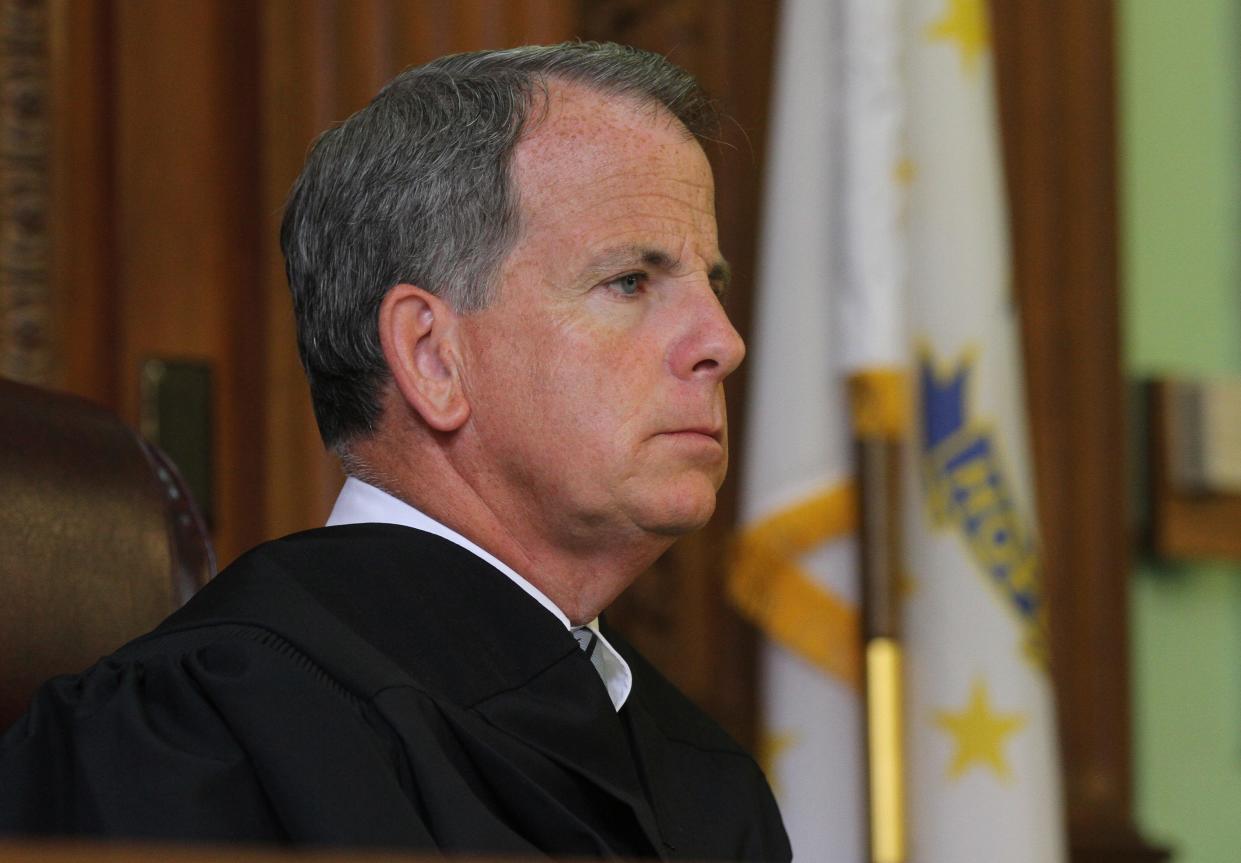'Vague and overly broad': Judge strikes down RI's child erotica law as unconstitutional
PROVIDENCE – A Superior Court judge has dismissed possession of child erotica charges against a Cranston man after striking down the law as unconstitutional.
Judge Jeffrey Lanphear dismissed the charges against the 68-year-old Cranston man after finding the state’s law barring the possession of child erotica overly broad and vague, in violation of the First Amendment.
“Statutes need clarity. Nowhere is that more important than in the criminal context, where individuals should be able to ascertain whether their acts risk criminal sanctions and where the police must know whether prosecution is appropriate,” Lanphear wrote.
To pass a First Amendment strict scrutiny analysis, a law must serve both a compelling government interest and be tailored narrowly.
“While this court recognizes the very legitimate goal of protecting children, the statute fails to serve the compelling interest it is designed. It does not criminalize the most exploitative aspect of the process of producing and disseminating child erotica. Even if the statute is found to serve a compelling state interest, it cannot be considered narrowly tailored. It criminalizes a far wider range of expression than simply serving to protect children,” the judge said.

The Rhode Island Public Defender’s office, which represented the man, hailed the ruling.
"As public defenders, it is our duty to uphold the foundational principles of the Constitution and shield the rights of those we represent. The successful challenge to the state's child erotica statute underscores the bedrock principles of free speech and expression enshrined within both federal and state Constitutions. The court's decision serves as an important reminder of the perils associated with vague and sweeping statutes capable of penalizing lawful content. Preserving constitutional rights remains paramount in our collective endeavor to foster a society that is equitable and just for all,” Curtis R. Pouliot-Alvarez said in an email Friday.
Brian Hodge, spokesman for Attorney General Peter F. Neronha’s office, did not respond to an email inquiry seeking a response and an update of whether they would appeal.
Concerns raised about vagueness of child erotica law
State lawmakers passed the child erotica bill and Gov. Dan McKee signed it into law in 2021, despite concerns raised by LGBTQ groups and the state affiliate of the American Civil Liberties Union about its vagueness. It was sponsored at the request of the Rhode Island State Police.
The law makes it a misdemeanor for anyone over the age of 18 to knowingly produce or possess images of partially clothed minors for the purpose of sexual gratification or sexual arousal. If convicted, an individual faces up to one year in prison, a $1,000 fine or both.
The ACLU praised Lanphear's ruling as in keeping with its warnings that the measure would run afoul of the First Amendment and have the effect of chilling a wide range of protected speech. It cautioned that was so broad that an 18-year-old who has been given a “partially clothed” photo of his 17-year-old girlfriend could be guilty of a crime, or that a person’s photo of young nieces playing topless at the beach could suddenly become criminal if someone else looks at them and sees "erotica."
"The ACLU believes that Judge Lanphear came to the right conclusion in finding this statute unconstitutionally vague and overbroad. Unlike the state's already-existing child pornography law, this statute criminalized a wide array of legitimate visual material and had the potential to chill a great deal of constitutionally protected speech," executive director Steven Brown said in an email.
What prompted the charges?
According to Lanphear’s ruling, a Rhode Island State Police detective received a cyber tipline alert from the National Center for Missing and Exploited Children that Google had become aware in July 2022 of a user who'd uploaded files of suspected child erotica to his Gmail account. The detective linked the account to a 68-year-old Cranston man.
The detective discovered images consistent with child erotica in the Cranston man’s Google Photos account and placed him under arrest.
Arguments for and against the child erotica law
Curtis R. Pouliot-Alvarez, of the public defender’s office, argued that the law prohibiting the possession of photos and videos of partially clothed minors used for sexual gratification was an unconstitutional content-based restriction of protected speech.
In addition, they argued that the law was vague and overbroad and as such prohibited protected forms of expression in violation of the free speech clauses of the First Amendment of the U.S. Constitution, as well as the Rhode Island Constitution.
Assistant Attorney General Meghan E. McDonough countered that child pornography was a category of speech that fell squarely outside First Amendment protection. She asserted that the law should still be upheld as proper content-based speech restriction and that it was neither unconstitutionally vague nor overly broad.
Lanphear emphasized that protecting children from the harmful psychological effects of sexual exploitation is a compelling government interest.
But in striking down the state’s arguments and the law, he said that “by banning all imagery used for the specific purpose of sexual gratification or sexual arousal from viewing the visual portrayals, the statute’s language is too sweeping. This phrase attempts to criminalize possession or production of imagery even if it is not demonstrated to be used for the producer’s own sexual gratification or arousal, and even when the image in question is not created or intended for that purpose.”
Lanphear observed that the law had the potential to criminalize the creation of a wide range of images of children “that are not exploitative in and of themselves and therefore do not have any negative psychological impact on the children portrayed.”
This article originally appeared on The Providence Journal: Judge strikes down RI's child-erotica law as unconstitutional
